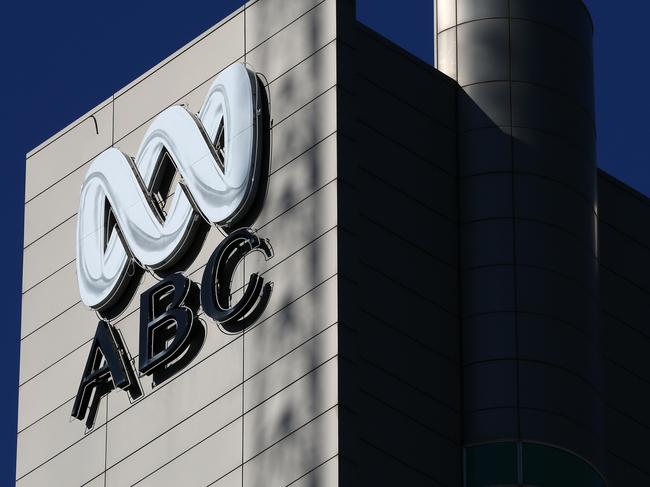Christian Porter fights to bar media companies from reporting on ABC defence
Christian Porter has been accused of trying to get a ‘de facto suppression order’ to protect his reputation as the legal battle over access to court documents continues.

Christian Porter has been accused of seeking a “de facto suppression order” to protect his reputation as he fights to bar media companies from reporting on confidential parts of the ABC’s defamation defence.
The tussle over the court documents between the former attorney general and media giants Nine and News Corp continued in the Federal Court on Wednesday, despite Mr Porter settling his case against the national broadcaster weeks ago.
The media outlets’ lawyers have had the un-redacted defence since May, after intervening in the high profile defamation case to fight against proposed suppression orders.
Now, the West Australian MP is seeking a declaration that the outlets will not use the documents for any purpose other than their intervention in the case, under a legal rule known as the Hearne v Street obligation.

Nine lawyer Larina Alick said on Wednesday this was a “gross distortion” of why the Hearne v Street rule was originally created.
“(Mr Porter is) seeking a safeguard over the ABC’s defence, not because he owns it, but because he doesn’t like what’s in it,” she told the Federal Court.
Mr Porter sued the national broadcaster over a story earlier this year by journalist Louise Milligan alleging an unnamed senior minister was the subject of a historical rape allegation.
Following intense public speculation, Mr Porter publicly outed himself as the accused minister and strongly denied the allegation. No charges have ever been laid.
The now minister for industry discontinued the defamation case on August 9 after settling with the ABC, and the parties jointly asked for the un-redacted defence and Mr Porter’s reply to be removed from the court file.
Justice Jagot ordered the removal, saying it was necessary to protect the “proper administration of justice” and had “nothing to do” with the powerful status of the former attorney general and the national broadcaster.
The judge also indicated she would revoke a suppression order over the un-redacted documents – effectively meaning their contents could be published, but without the protection from defamation that generally accompanies fair reporting of court cases.
Her ruling left open a question of whether Nine and News Corp can report on the documents once the suppression order is lifted.

Mr Porter’s barrister, Barry Dean, said the way in which the outlets had obtained the documents – Mr Porter being compelled to hand them over under court processes – meant they could only use them for the case itself.
He said the companies had responded with “vagueness” when Mr Porter requested they destroy the documents on August 4 and again to ask if they acknowledged the Hearne v Street obligation on August 10.
This prompted the request for a court order, though the obligation exists regardless, Mr Dean said.
Ms Alick said the obligation did not apply to the defence and reply; Mr Porter was never compelled to hand them over; and that the minister, a lawyer himself, knew full well the risk to reputation that comes with suing someone.
She said the original purpose of the Hearne v Street rule was to give a party in a lawsuit the right to keep documents to itself, not to allow people to protect themselves from other parties’ documents.
Ms Alick also argued Mr Porter was seeking a “de facto suppression order” and effectively asking the court to protect his reputation without a proper basis.
In response, Justice Jagot laughed and said she had been saying “from the beginning this is all about suppression”.
“Never mind, we’re still here, but we do want this all over with at some point,” she said.
Ms Alick added that if Justice Jagot found the media outlets were obliged not to use the defence, she would also have to find it could not be used by the South Australian coroner, who is investigating Mr Porter’s accuser’s death.
The woman died by suicide in June 2020, one day after she emailed police to say she did not wish to go ahead with her complaint about Mr Porter.
The alleged incident reported by the ABC was said to have occurred in 1988, when Mr Porter was 17 and the woman 16.
Justice Jagot has reserved her decision.


